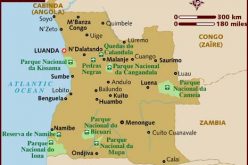 The Star, By Andrew Halonyere and Valarie Adhiambo – The Kenya Forestry Service has been stopped from punishing its employee Robert Mboya Nyaringo for failing to go for training on Saturday, which is his day of worship.
The Star, By Andrew Halonyere and Valarie Adhiambo – The Kenya Forestry Service has been stopped from punishing its employee Robert Mboya Nyaringo for failing to go for training on Saturday, which is his day of worship.
The Industrial Court sitting in Kisumu held that the decision by KFS not to accord and afford Nyaringo the right to observe his Sabbath day from Friday sunset to Saturday sunset and to compel him to attend training on Saturday was unconstitutional, improper and unlawful. The court said the decision contravened Nyaringo’s freedom of religion and belief under Article 32 of the constitution.
According to Nyaringo, he is a Seventh-Day Adventist, whose religious belief and conviction entail observing the Sabbath from Friday sunset to Saturday sunset. He also served as a church elder.
Nyaringo was employed by KFS as an assistant lecturer and deployed at the Kenya Forest Service College at Londiani. He was nominated to attend a paramilitary training, which was scheduled to run for six days a week, including Saturdays.
He wrote a letter to KFS director through the principal, Kenya Forestry College, requesting to be exempted from the training every Friday sunset to Saturday sunset for worship. The request was however rejected.
Despite the decision, Nyaringo reported for training one hour late and did not show up on Saturday, his Sabbath. He was issued with an interdiction letter charging him of gross misconduct and not attending classes on Saturday. Nyaringo was directed to undertake the training at his own cost.
He appealed to KFS Board, saying his fundamental rights and freedoms were violated and no misconduct had been established against him. However, the board did not respond to his appeal, hence the petition before the Industrial Court.
The issues for determination before the court were:
1. Whether Nyaringo belonged to the Seventh-Day Adventist church and faith.
2. Whether it had been established that Nyaringo, as a Seventh-Day Adventist, was, by his religion, required not to work on the Sabbath as a holy day in his faith.
3. Whether the decision by KFS not to accord and afford him the right to observe his Sabbath day from Friday sunset to Saturday sunset and to compel him to attend training on Saturday was unconstitutional, improper and unlawful.
4. Whether the decision by KFS to mete out a demotion was improper, unlawful, wrongful and oppressive
Industrial Court judge Byram Ongaya established that Nyaringo belongs to the Seventh-Day Adventist church since he was baptised and is a church elder. He said there was no material before the court to dispute that Nyaringo belonged to that faith.
The judge was of the opinion that any person who considered their religious duties seriously should never accept employment in the public service such as in KFS.
He said Article 27 of the constitution protects the right to equality and freedom from discrimination including on account of the person’s religion, conscience and belief and that section 5(3) of the Employment Act, 2007 does not allow an employer to discriminate an employee on inter-alia grounds of religion.
The court stated that the act of KFS of neglecting or refusing to act by considering and responding to Nyaringo’s request for exemption from training on the Sabbath day and subsequently subjecting him to the training on Sabbath day without addressing the request, amounted to harassment on account of religion and belief.
“It was unacceptable for the Kenya Forestry Service and any other employer to embrace a policy and impose it on the employee without contractual provision or relevant consultation with the consequence that the employee’s religion and belief is undermined culminating in imposition of a punishment,” the court observed.
The judge was of the view that the claimant’s choice to work for KFS should not be perceived that he had voluntarily opted to place limitation upon certain of his fundamental freedoms and rights, including the right to his religion and beliefs, without any express and legitimate or lawful agreement in that regard. That in order for one to justify the limitation in imposing the Sabbath day training session the following had to be established:
1. The nature of the right or fundamental freedom had been taken into account
2. The importance of the purpose of the limitation;
3. The nature and extent of the limitation;
4. The prejudice to others’ rights and fundamental freedoms and
5. The relation between the limitation and its purpose and whether there were less restrictive means to achieve the purpose.
In light of this, the court was of the view that KFS failed to take into account the relevant considerations and held that the decision not to accord and afford Nyaringo the right to observe his Sabbath day and to compel him to attend training on Saturday was unconstitutional, improper and unlawful as it contravened his freedom of religion and belief under Article 32 of the constitution.
On whether it was improper, unlawful, wrongful and oppressive for KFS to demote Nyaringo, the court was of the opinion that Nyaringo was under the commandant’s administrative disciplinary powers and that any misconduct during the training related to breach of the school’s rules and not the terms and conditions of employment.
The court therefore held that it was not open for KFS, as an employer, to assume authority and purport to adjudicate over alleged breach of the school rules by invoking the employer’s administrative disciplinary proceedings.
The court dismissed KFS’s decision requiring Nyaringo to undertake the training at his own expense. It stated that KFS had not established that due process was followed in attributing the expulsion of Nyaringo from training due to misconduct.
The court ordered KFS to facilitate Nyaringo’s paramilitary training at its expense within 12 months from the date of judgment.










